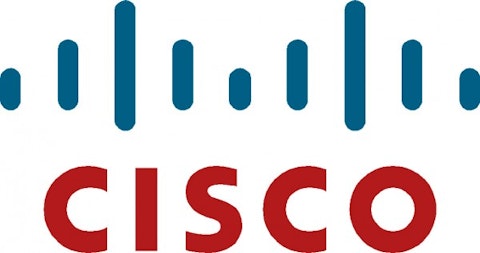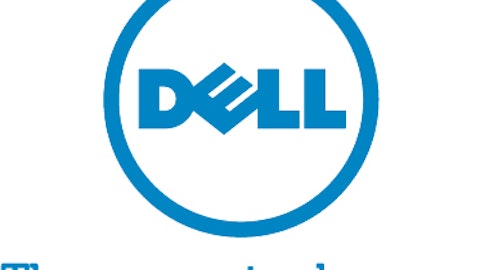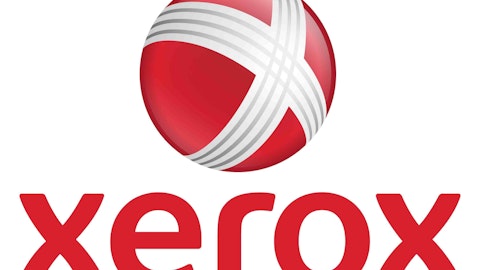You Have to Love the Hate
The most important aspect of investing, for me, is safety. I hate to lose money–but the real purpose of investing is to make money. If avoiding losses and making big returns were easy, I am quite sure everyone would be very wealthy; obviously, it must be somewhat difficult. The first big step in not losing money in the stock market is to make sure the companies in which I invest will not issue a statement one day declaring bankruptcy. That will almost always end badly for the shareholders! However, to be priced low enough to provide the returns I seek, it will certainly not be a stock that Wall Street currently loves. Today, I believe I have found a business that will be with us for a very long time, provides me with a comfortable margin of safety, and, while it might not still be hated by the market, seems to be disliked enough to present the potential for an excellent return on my capital. I just love it when Wall Street hates great businesses.

Another important aspect in establishing the safety factor of an investment is the market position of the products and services offered by the business. Cisco Systems, Inc. (NASDAQ:CSCO) is the dominant supplier of IP-based networking gear that is the backbone of the Internet. It is also a major supplier of products for the communications and IT industries. It is simply hard to find anyone who is not familiar with this brand. This is important from the standpoint of the IT employee making a purchase since, if there is ever a problem, when he tells his non-technical boss: “It shouldn’t have happened since I bought a Cisco Systems, Inc. (NASDAQ:CSCO) product.” The boss will recognize the name and assume the problem could not have been prevented. The brand is a margin of safety for the buyer.
Can CSCO Compete in Its Market?
All of this tells me the business is secure, but I must also know that it is undervalued compared to its competitors if I expect it to outperform the market. Yahoo! Inc. (NASDAQ:YHOO) Finance lists Cisco Systems, Inc. (NASDAQ:CSCO) as having three primary competitors in the space: Alcatel Lucent SA (ADR) (NYSE:ALU), Hewlett-Packard Company (NYSE:HPQ), and Juniper Networks, Inc. (NYSE:JNPR) . The table below shows how Cisco Systems stacks up against these three competitors.
Business Cisco Alcatel HP Juniper
5-yr GM 62.09% 32.4% 23% 65.4%
Debt/Equity 0.29 2.47 1.23 0.14
ROE 1-yr. 17.79% -70.34% -41.53% -1.0%
ROE 5-yr avg. 17.7% -34.4% 10.1% 5.9%
Current Earnings $1.81 -$0.10 $3.46 $0.88
5-yr proj. grwth. 9.9% 10% 2.4% 13.4%
PEG 1.16 2 2.4 1.74
Dividend Yield 2.69% 0 2.12% 0
Price/Cash Flow 9.2 N/A 2.82 28
From this table, the most critical numbers upon which to focus are the Debt/Equity, Return on Equity, and PEG (price to earnings growth ratio). For me, I begin to look very closely when the debt/equity ratio is above 0.5; above 1, in most cases, is a glaring red light. Return on equity tells me how fast management is increasing the value of the holdings of the shareholders; since I look to achieve a 15% annualized return on my capital, I want this number to be very close to 15% or more. If the number is a large negative, it means something has occurred that absolutely decimated the value of the shareholders’ ownership stake. The PEG ratio tells me how expensive the business is related to its projected earnings growth rate; the lower this number, the better, as a rule.
Out of this group, the only two businesses that come close to meeting my criteria for investment are Cisco Systems, Inc. (NASDAQ:CSCO) and Juniper. The problems I would have with Juniper are that its return on equity has not been superb in either the 1-year or 5-year time span, and its current price to earnings growth is on the high side of the valuation range I would consider.
What is a fair value for the stock?
Cisco Systems, Inc. (NASDAQ:CSCO), on the other hand, looks to be firing on all cylinders. Considering its dominant position in the space (a market cap 10-times the size of Juniper) and its superior cash flow and return on equity, it seems to have a very clear advantage in the competition for my capital. If the market were to simply value Cisco Systems, Inc. (NASDAQ:CSCO) at a very reasonable PEG or price to cash flow of 15, the stock would rise by 50% from its current level. This is a company that dominates its space, has built a fortress of a balance sheet and offers a very realistic chance to achieve a compounded rate of return on capital equal to 15% or more over the next 5 to 10 years. That’s why it deserves a place in the portfolio of any investor seeking a position they can hold for years and collect a safe, steady stream of profits.
The article A Dominant Business at a Bargain Bin Price originally appeared on Fool.com and is written by Ken McGah.
Copyright © 1995 – 2013 The Motley Fool, LLC. All rights reserved. The Motley Fool has a disclosure policy.





